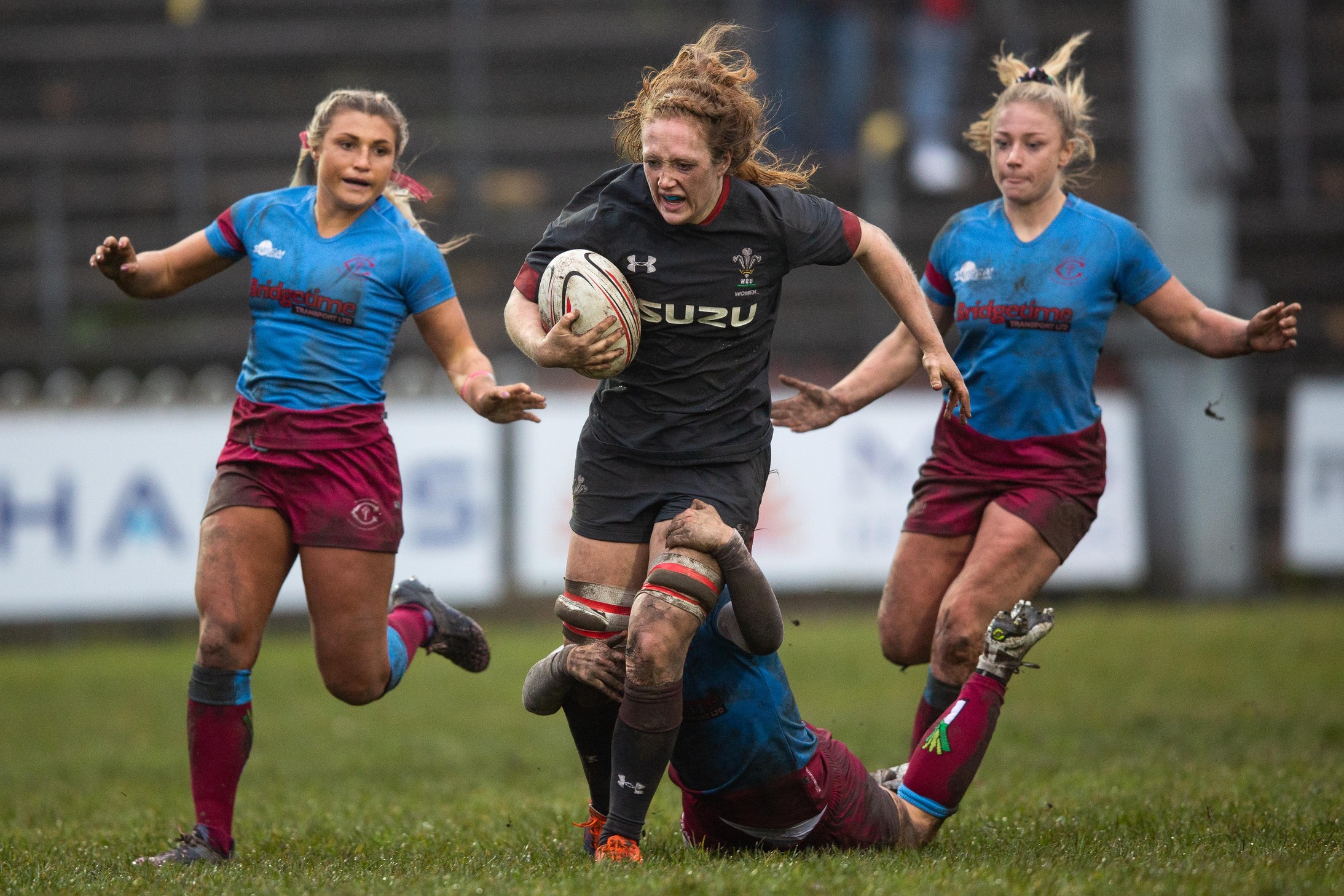The Llandaff North alumna is one of the players awarded a semi-professional WRU contract
AS large sporting events return in Wales, it can be easy to forget how divided the country became when sport was first cancelled.
While some pushed for restrictions to keep us safe, others thought those measures were unnecessary, particularly outdoors, and pushed for exceptions for sport.
But as a rising Welsh rugby star and a frontline NHS worker, Abbie Fleming was right in the middle of this debate.
Abbie made national news when she became one of the women to receive a retainer contract with the Welsh Rugby Union last month. She is now paid to compete semi-professionally with the Wales team while continuing her work as a physiotherapist in Exeter.
Just before the pandemic hit, the flanker received her first cap for Wales in Madrid at the 2019 autumn Internationals, a milestone in her career. But she wouldn’t see another opportunity like this until nearly two years later.
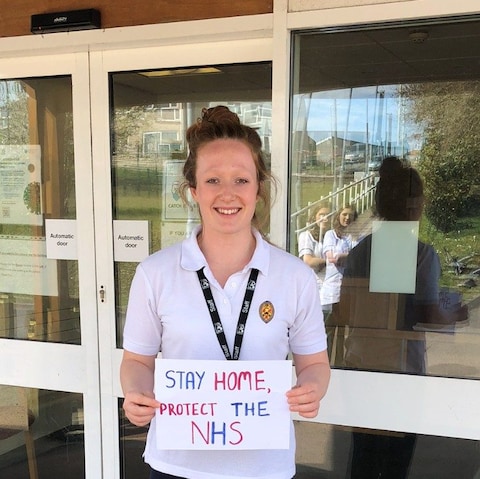
In March 2020, Abbie began treating ventilated patients in the intensive care unit at the Princess of Wales Hospital in Bridgend, primarily treating patients who were seriously affected by Covid.
She continued her rugby training throughout the pandemic, even with games being cancelled, but this was not an easy decision.
“It was incredibly important for me to continue with training, but with the profession that I was involved in, I was almost doubting my own wants and desires because of the fear of putting myself and my patients at risk.
“There was a risk with me training that I would come into contact with other players who may potentially have Covid and risk taking it back to my patients.
“Because a lot of the patients we treated in the community were geriatic, they were incredibly frail and elderly. If they were to catch Covid, that would be potentially life-threatening for them.”
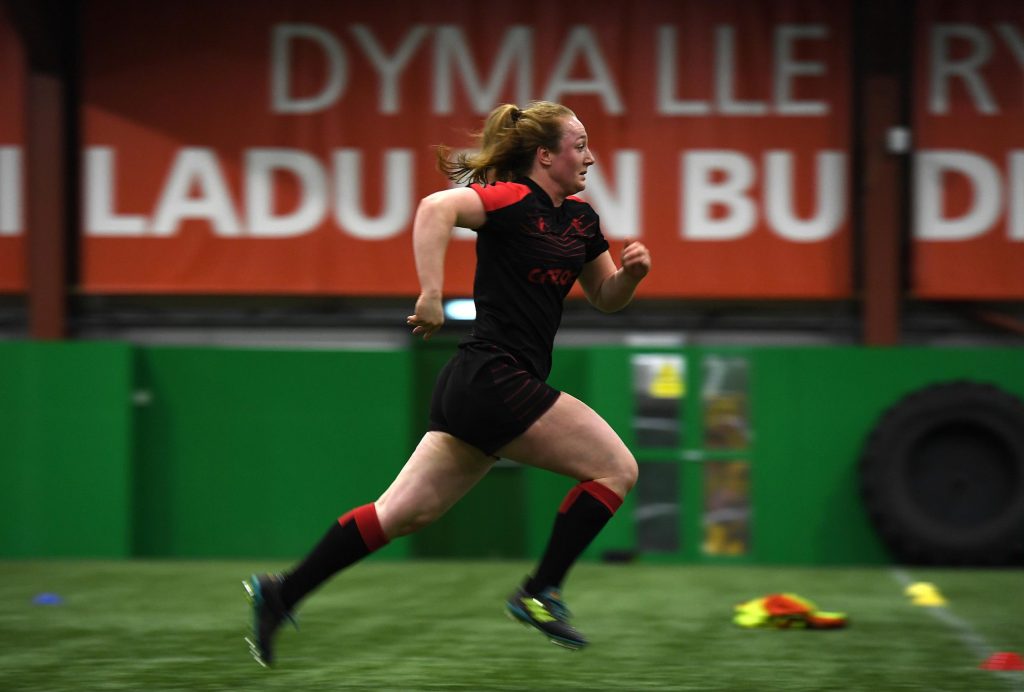
When sporting events were still not going ahead, Abbie empathised with disappointed fans as well as vulnerable people who were grateful for the restrictions.
“On one hand, you’re going into patients’ houses, and you can see how unwell they are and how much they’re suffering from Covid. You want everyone to protect themselves.
“But on the other side, you want to be able to participate in the sport and play international rugby. And it was very hard to get that balance.”
When Abbie received a call from her head coach a few weeks after the team finished the 2021 autumn Internationals, Abbie admits it came “completely out of the blue”.
Many said Wales were “making history” when it announced that the WRU would award professional, full-time contracts to 10 players, and part-time retainer contracts to another 15.
On Abbie’s success, Wales Women head coach Ioan Cunningham said: “Abbie has an outstanding work ethic. She is a diligent student of the game.
“She is a very positive influence on the squad environment on and off the field and I’m excited to see what she can bring in the next couple of months.”
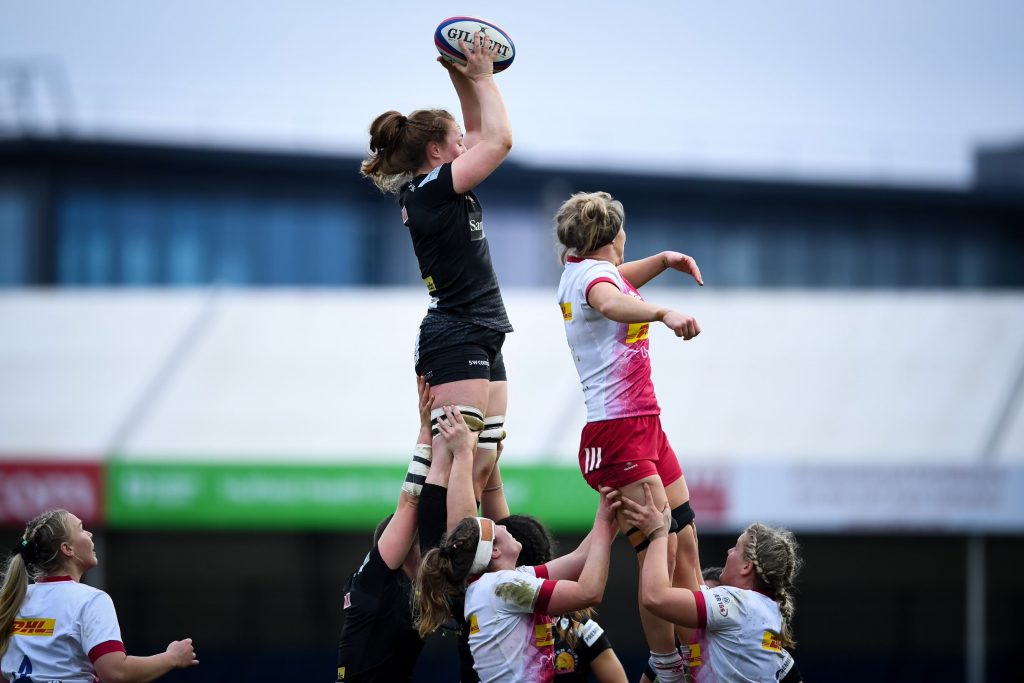
For Abbie, the semi-professional contract allows her to continue her work in health care while also pursuing personal goals with international rugby.
“It gives me that time to recover and do the extra bits that it takes for you to be a professional athlete, but it also allows me to maintain competency in my profession as a physiotherapist.
“And for us as female athletes, we play alongside a lot of other nations from all around the world, and some countries where athletes aren’t paid professionally to play rugby.
“It’s a real step in the right direction for us as athletes, but also for Wales as well.”
Under the retainer contract, Abbie will work in Exeter for an urgent Community Response Team three days a week, work which is designed to prevent hospital admissions and treat acutely unwell patients at home.
Additionally, for one to two days a week, Abbie will train with the WRU and play for the Exeter Chiefs.
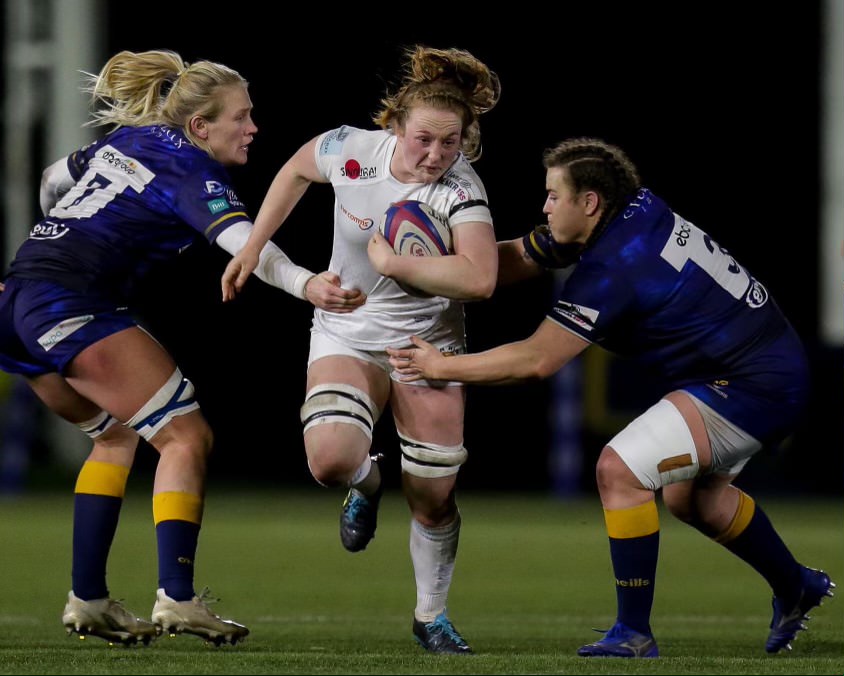
In the future, she hopes to see a fully professional Wales national team.
“We want every player to be fully professional and be able to commit to the team full-time, and not have to worry about an alternative income to make ends meet.”
To do this, Abbie feels it is important to get rugby out in the world for young girls to see and support feeder clubs.
Before moving on to Exeter Chiefs, where she now plays alongside the WRU, Abbie was involved with Llandaff North RFC, which she credits with helping her grow as an athlete.
“My time at Llandaff North allowed me to become the player I am now because, even now, they’re incredibly supportive.
“I would encourage younger girls to go and play with them.”
On a personal level, Abbie hopes to play international rugby for as long as she can.
“I want to do the most I can in the Wales jersey and give it the most amount of time I’ve got that my body can handle.
“I’m looking to play international rugby until I retire.”


